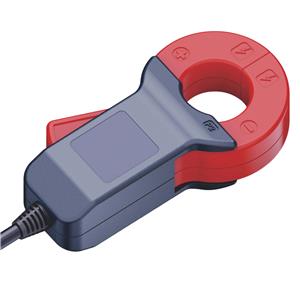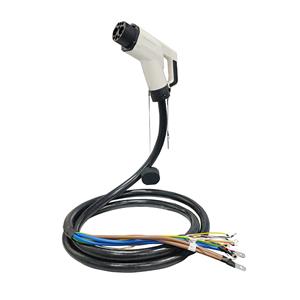-
1705-2025
Modular BMS Shunt Resistor Series Redefines Battery System Design
On May 13, a tech firm released the SE8518 series of four BMS-focused shunt resistors, targeting critical industry challenges: SE8518-10: Micron-level tin plating withstands 2,000-hour salt spray testing. SE8518-02/12: Triple-pin design enables simultaneous voltage, temperature, and current sensing. SE8518-03/13: M3 threaded holes boost installation efficiency by 60%, ideal for battery-swap systems.
-
1705-2025
Compact 800×800mm Shunt Resistor Debuts, Solving Precision Challenges in EV Battery Management
As the global EV industry enters a critical phase of battery management system (BMS) upgrades, a tech company unveiled the SEFL-100A-100mV-01 fixed-value shunt resistor on August 1. Measuring 800×800mm, this brass-based component achieves a 100mV voltage drop at 100A current, utilizing high-purity manganin alloy for ±0.5% accuracy across -40°C to 125°C. Its 30% smaller footprint enables direct integration into battery modules.
-
2011-2024
Tin-Plated Battery Shunt Resistor
In the rapidly evolving landscape of energy management systems, the Tin-Plated Battery Shunt Resistor (TPBSR) has emerged as a critical component due to its unique properties and versatile applications. These resistors, composed of a thin layer of tin over a base material, play a pivotal role in ensuring the safe and efficient operation of battery-powered devices.
-
2709-2024
High Performance and Customizable Terminal Solutions: The Ultimate Choice for Reliable and Stable Connections
In an era where reliability, efficiency, and customization are paramount in engineering solutions, our product stands out as a beacon of excellence. Tailored to meet the stringent demands of various industries, this high-performance terminal system offers unparalleled stability, reliability, and adaptability.
-
2309-2024
Shunt Resistors
In the realm of modern electronics engineering, shunt resistors serve as a fundamental and crucial component in circuits, playing an indispensable role in power measurement, temperature compensation, power management, and various signal conditioning systems. This article aims to delve into the definition, function, applications, and latest research trends of shunt resistors to provide readers with a comprehensive understanding.
-
2108-2024
Applications of Tin-Plated Battery Shunt Resistors
In the automotive industry, they are crucial for battery management systems. They help monitor the current flowing in and out of the battery, enabling accurate charging and discharging control. This ensures the battery's longevity and optimal performance, especially in electric and hybrid vehicles where battery health is of paramount importance.
-
1308-2024
Exploring the Performance Characteristics of Tin-Plated Battery Shunt Resistors
Tin-plated battery shunt resistors are specialized components designed to offer specific performance features that cater to applications requiring precise current measurement and control, particularly in battery systems. These resistors are characterized by unique properties that enhance their functionality in various settings.
-
1008-2024
The Versatile Applications of Precision Shunt Resistors
Precision shunt resistors, an essential component in electrical circuits, find their applicability in a wide range of scenarios where accurate current measurement and control are of utmost importance. Their precision and reliability make them invaluable in various industries.
-
1101-2024
The working principle of a battery shunt resistor
The working principle of a battery shunt resistor is fundamental to understanding its role in current measurement and overall battery system management. When connected in parallel to the battery, the shunt resistor serves as a crucial component for accurately measuring the current flowing through the system. This discussion will delve into the basic working principle of a battery shunt resistor, explaining its connection to the battery and its essential role in providing a low-resistance path for current measurement.
-
0112-2023
Thermal Effects and Temperature Drift of Current Shunt Resistors
In the field of electrical engineering, Current Shunt Resistors are widely used for accurate current measurements. However, it is important to consider the thermal effects and temperature drift characteristics of these resistors to ensure their reliable performance. This article aims to explore the impact of thermal effects and temperature drift on Current Shunt Resistors and discuss strategies to mitigate their influence.




